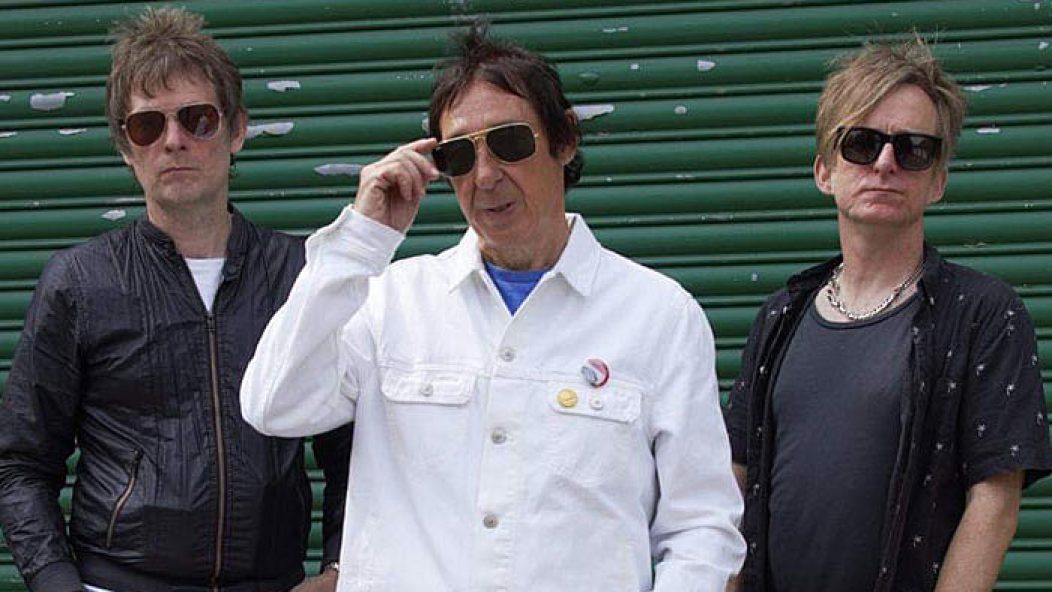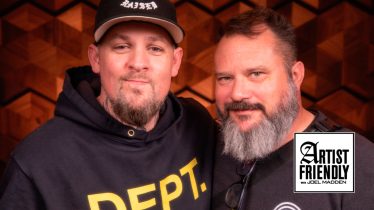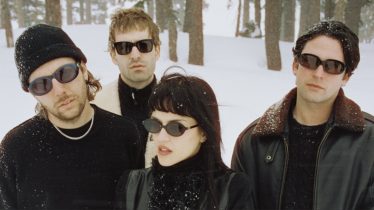
These 5 records by Buzzcocks practically invented pop punk
June 21, 2019, Royal Albert Hall, London: What was intended as a celebration of perhaps English punk’s most universally beloved band, Buzzcocks, is now a wake. On Dec. 6, 2018, frontman Pete Shelley died of a heart attack in Estonia, where he’d been enjoying a less hectic existence than London had afforded him for 30 years.
The occasion was supposed to be the biggest 1977 punk gig ever, with opening sets from Penetration and the Skids. The original Buzzcocks rhythm section of bassist Steve Garvey and drummer John Maher would join remaining co-guitarist/songwriter Steve Diggle and current drummer Danny Farrant and latter-day bassist Chris Remington. But now the center mic had no one manning it. The band’s guitarist and chief songwriter was gone.
Read more: These 15 best punk albums of 1983 include eternal hardcore classics
Diggle announced he’d keep Buzzcocks going, in an agreement made with Shelley. Valiant and appropriate, considering all the best modern-day Buzzcocks songs, such as the extraordinary “Sick City Sometimes,” were Diggle’s. When you see them on tour, he will be singing Shelley’s songs, too. But that night at Royal Albert Hall, a brace of special guests took the stage. Peter Perrett of the Only Ones; Penetration’s Pauline Murray; The Skids’ Richard Jobson; Dave Vanian and Captain Sensible of the Damned; Tim Burgess of the Charlatans UK; and Sonic Youth’s Thurston Moore.
For the grand finale, every single guest vocalist piled onstage to sing the greatest Buzzcocks tune, “Ever Fallen In Love (With Someone You Shouldn’t’ve?).” They needn’t have bothered: All that was necessary was to turn the mic toward the audience and play instrumentally. The crowd knew every word.
This was because Shelley did write the best songs in all of punk. So good, they went beyond punk. He had a keen melodic sense. It was born of ’60s pop but leavened with a yen for the strident experimentation of German art-rock acts (Can, Neu!) and the fundamentalist rock ’n’ roll of glamsters such as David Bowie. But most important was his subject matter: He wrote supremely universal lyrics. They were almost all love songs, except no one got the object of desire in a Shelley song. And they might as well have been objects, considering gender was never specified in any of them. Perhaps this was due to his lifelong bisexuality. But it was as revolutionary as any political lyric coming out of London.
There are exactly five essential Buzzcocks albums that are stone-cold classics. Check them out below.
Read more: Top 8 videos that capture Britpunk in all its snarling glory
Spiral Scratch EP
Behold the dawn of U.K. indie rock, as well as DIY and several other historic firsts. Buzzcocks were initially conceived by university students Howard Trafford and Peter McNeish in 1976, after having their Damascene moment seeing the Sex Pistols earlier that year. Diggle met them after they became Howard Devoto and Pete Shelley at the summer 1976 Pistols gig in Manchester that sired the entire local scene. (The Fall, Joy Division, Factory Records and the Smiths all start here.) Diggle was meeting someone else at the venue, and it was then Sex Pistols manager Malcolm McLaren accidentally introduced him to the Buzzcocks singer/guitarist. With teenage Keith Moon acolyte Maher on drums, they wed a noise akin to a krautrock Ramones to Devoto’s arch lyrics, delivered in a flat yawp impossible without Johnny Rotten’s example.
Read more: Buzzcocks frontman/pop-punk architect Pete Shelley dies at 63
Following a rough-and-ready demo session (captured on Domino’s Time’s Up LP), the band decided to properly document the sound they’d forged. Four songs were recorded in late December 1976 by Martin Hannett, the man who shaped the sound of Manchester. “It took three hours [to record], with another two for mixing,” Devoto recalled of the session. Funds exhausted, the band borrowed £500 from friends and family to press it. Released on Jan. 29, 1977 on their own New Hormones label, Spiral Scratch made Buzzcocks the first British punk act to issue their own records. It swiftly sold out its initial thousand-copy pressing.
Historical value aside, the music makes this such a brilliant release. Crisply recorded and sonically dry, there’s an urgency to these speedy missives, especially “Breakdown” and “Time’s Up.” “Friends Of Mine” bemoans pals who keep Devoto “pissing adrenaline,” while Shelley unleashes a two-note guitar hook across “Boredom” that sounds simultaneously like a siren and the death of six-string heroics.
Read more: An appreciation of Joy Division 40 years later by Geoff Rickly
Another Music In A Different Kitchen
Almost immediately following Spiral Scratch‘s release, Devoto decided punk’s over and he’s done all he wanted with Buzzcocks. He left to finish his university studies, eventually forming prime post-punk outfit Magazine after graduation. This put Shelley in front of the center vocal mic, enabling Diggle to return to guitar. Garth Davies assumed bass duties, replaced by the more-amenable Garvey by the time Buzzcocks signed with United Artists Records. The explosive “Orgasm Addict” 45 soon followed, guaranteed to escape airplay.
In December, the band entered the legendary Olympic Studios to essentially liquidate their inventory of Devoto-era material for a debut LP. Another Music In A Different Kitchen offered 11 slices of loud speed pop. With Maher’s animalistic drums propelling Shelley and Diggle’s hot-wired guitars, the former’s fey, delicate warble delivered lyrics surely penned by Devoto, such as the skewering of the traditional rock obsession with hot rods, “Fast Cars.” But it was on “I Don’t Mind” that Shelley previewed his vision for Buzzcocks’ future: a singles band offering a bitter view of romance, with no one getting the object of desire.
Read more: 15 punk-rock albums of 1979 that still rule four decades later
Love Bites
Six months after the release of their debut LP, Buzzcocks appeared bleary-eyed and disheveled from Love Bites‘ pure white sleeve. The music also sounded less upbeat than Another Music. This is the sound of a band who’d undertaken two national tours, countless Top Of The Pops appearances and issued two hit singles on the way to its creation. Not that Love Bites lacked energy. The key track is their greatest single, “Ever Fallen In Love.” Perhaps the most glorious singalong ever written, the lyrics lament a secret love that could ruin a friendship. (“I can’t see much of a future/Unless we find out what’s to blame, what a shame/And we won’t be together much longer/Unless we realize that we are the same.”) Yes, Shelley essentially wrote “Love Will Tear Us Apart” a full two years before Joy Division did. “Ever Fallen In Love” is better, however.
Read more: 10 movies we need to see be a Netflix TV series
Singles Going Steady
The greatest Buzzcocks album isn’t a proper LP. It’s a greatest hits album, assembled from the eight U.K. 45s they’d released across the previous two years, presented in sequence with the A-sides on Side One and the Bs on the reverse. Intended as a U.S. introduction to the band as they embarked on their first American tour in the second half of 1979, Singles Going Steady worked because it presented all of Shelley and Diggle’s best material. It’s their essential music. Buzzcocks would never record a more perfect full-length.
A Different Kind Of Tension
The last original Buzzcocks album was the sound of Shelley’s nervous breakdown, set to a precursor of modern cut-and-paste digital record production. Yes, it was recorded analog. But all guitars and vocals were set atop tape loops of the Maher/Garvey rhythm section. Electronic elements were seeped in, flavoring even Diggle’s punk screamers (“Mad Mad Judy”). But the heart of this LP is the fragile, disturbed tunes Shelley was penning under doses of LSD. “You Say You Don’t Love Me” was the one great 45 not on Singles Going Steady. But the album’s highlight is truly the lengthy existential breakdown “I Believe,” with its shrieked refrain of “There is no love in this world anymore!” From here came the 45 RPM triptych that became 1981’s Parts 1,2, 3 and dissolution until eight years later. Buzzcocks live, since 1989.







